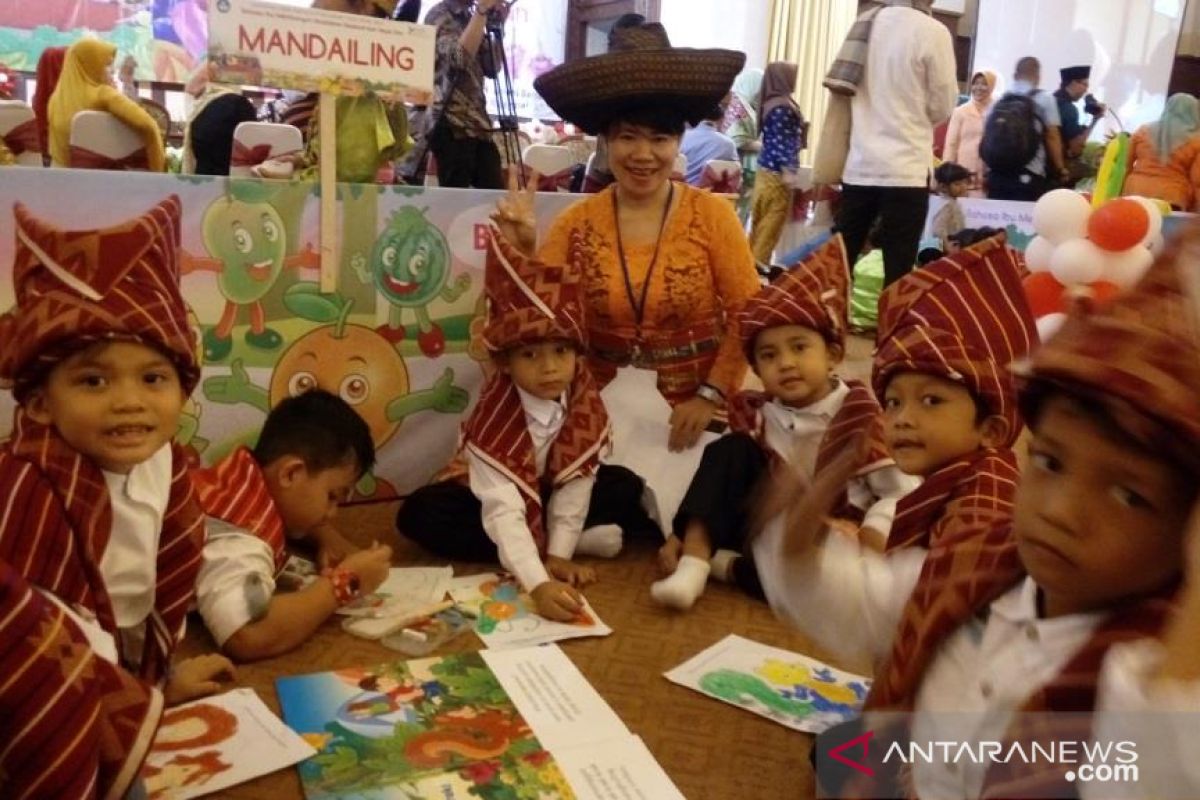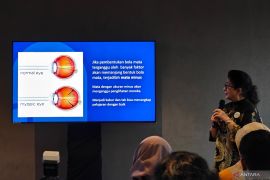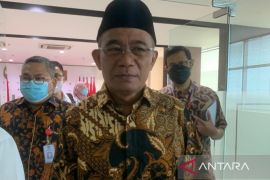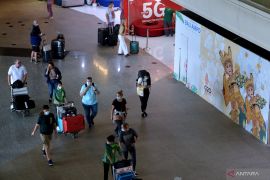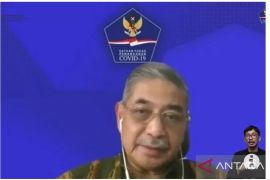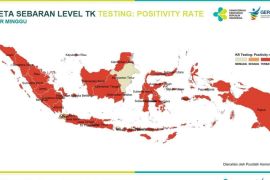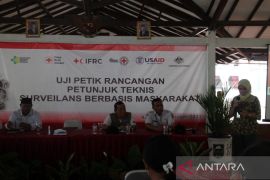The threat of the new type of coronavirus was temporarily ignored, as schools once again opened, brimming with life, filled with the noises and chatters emanating from classrooms.
As the students return to schools, media reported and spread the news all across various platforms of television, online news, and printed media. Some videos and photos that circulated on social media showed the students' and teachers' newfound spirits despite the strict health protocols that limit them.
The limited face-to-face learning policy had been implemented in some districts and cities, especially in regions with green or orange COVID-19 tags.
The Education and Culture Ministry stated as of September 4, 2021, that 27.17 percent of the 435,650 elementary to high school level schools in Indonesia had held limited face-to-face learning. This means that around 117 thousand education units have opened schools again.
The government has allows limited face-to-face learning in areas that enforce level 1 to 3 community activity restrictions in line with the situation that gradually recovers from the pandemic.
Limited face-to-face learning is conducted on the basis of a joint decree of the Education, Culture, Research, and Technology Minister; Home Affairs Minister; Health Minister; and Religion Affairs Minister, regarding guidelines for the policy of learning during the COVID-19 pandemic.
Schools are required to provide both limited face-to-face and distance learning options, so that parents still have full authority and liberty to choose which learning method is best suited for their children.
Regarding distance learning, the National Committee of Child Protection noted that many students experienced psychological pressure, as scores of them could not partake in online distance learning. The pressure was so high that some dropped out of school due to various problems that arose during distance or online learning amid the COVID-19 pandemic.
The National Committee of Child Protection had received at least 213 complaints within three weeks, from March to April 2020, with most of them being related to the severity of assignments given by teachers to students.
"Teachers and schools continue to pursue curriculum achievements despite the difficulties experienced by the community due to the impacts of the pandemic. Of that figure, majority of the complaints are related to the severity of assignments given by teachers to students," Retno Listyarti from the National Committee of Child Protection Commissioner for Education remarked.
The Committee also supports the government's decision to enforce limited face-to-face learning policy, as the COVID-19 transmission rate had declined while still paying attention to the precautionary principles, school's readiness to implement strict health protocols, and full support from the local government where the policy is implemented.
The National Committee of Child Protection supervision in 2020 regarding the learning trial showed an increase in school readiness to conduct limited face-to-face learning in the midst of a pandemic.
Related news: Jakarta postpones classroom learning policy for 1,509 schools
Supervision of the preparations for school openings was conducted in 21 districts and cities in nine provinces, those being Jakarta, West Java, Central Java, East Java, Banten, Yogyakarta, Bengkulu, and West Nusa Tenggara. It showed that 79.54 percent of the schools were ready to conduct limited face-to-face learning in the midst of a pandemic.
Emergence of cases
Amid the government's efforts to ensure students returned to schools, news of pupils being exposed to COVID-19 began to surface sporadically. The most recent reports came from Central Java. Some 90 junior high school students in Purbalingga and 30 madrasa students in Jepara tested positive for COVID-19 when the limited face-to-face learning had only lasted for two weeks.
Does the surfacing of new COVID-19 cases among students mean that limited face-to-face learning must be stopped despite schools having recently been reopened?
The pros and cons, criticisms, and highlights in recent times have come from various people, ranging from academics, epidemiologists, and community leaders, to politicians, who had urged the government to evaluate the policy and even completely stop it.
In responding to the cases of COVID-19 transmission among students, the government wisely dismissed the inappropriate issue related to data on the number of students exposed to the coronavirus disease when limited face-to-face learning was implemented.
Education, Culture, Research and Technology Minister Nadiem Makarim deemed the news about 2.8 percent of the schools becoming COVID-19 clusters as long as the policy was enforced as a misconception.
Makarim clarified that this figure was cumulative data from the entire period of the COVID-19 pandemic and not from the last month when the policy was implemented.
"The news that 15 thousand students and seven thousand teachers tested positive for COVID-19 is actually based on raw data reports that contain lots of errors. One example of an error is how many reported the number of positive cases (in some schools) that actually exceeded the number of students in these schools," he pointed out.
Related news: Fifteen Surabaya's schools commence limited classroom learning
Makarim's determination to return students to school through the limited face-to-face learning policy remained undeterred, final, and non-negotiable.
Face-to-face learning must be conducted immediately, so that students do not experience learning loss.
"It is impossible to conduct distance learning until all students are vaccinated against COVID-19, as it would take up to 2.5 years in order to complete vaccination of all students," he stated.
In addition to learning loss, several students experience psychological pressure, as they have to study in different conditions. The reason is that several students experience domestic violence while learning from home.
Obviously, Makarim did not want the negative impacts befalling the students to continue.
The minister expressed concern over several schools that can still implement face-to-face learning but had not done so, which can lead to learning loss among students.
"I am more concerned that only 40 percent of our schools, which can conduct limited face-to-face learning at this time, have just done limited face-to-face learning. Hence, 60 percent of our schools that are actually allowed to conduct limited face-to-face learning haven't (conducted it) yet," he pointed out.
Makarim's concern was based on data from World Bank and various research reports that indicated potential learning loss or academic process setbacks due to the lack of limited face-to-face learning during pandemic.
He highlighted the importance of direct learning, especially for children at the early childhood education and elementary school levels.
If these schools are not opened, the negative impact could be permanent.
"Hence, what is more worrisome for us is how long the kids have been implementing distance learning and which effectiveness is far below the face-to-face (learning)," he remarked.
Indonesia lags behind in terms of implementing its school opening policy as compared to other countries.
In order to catch up, returning to school is a tough step that must be taken. The key to its success is to always implement strict health protocols and maintain harmonious cooperation among the government, teachers, students, and parents.
Do not be afraid of going back to school!
Related news: Vaccinating teachers strategic effort to expedite classroom learning
Editor: Rahmad Nasution
Copyright © ANTARA 2021
